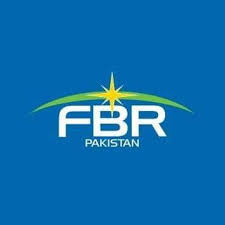Understanding Import Regulations in Pakistan: A Comprehensive Guide
Basics of import
Importing goods into Pakistan is governed by the Federal Board of Revenue, focusing on economic growth while protecting local industries and consumer safety. The import policy includes a comprehensive list of permissible goods and restrictions. Classification of imports requires adherence to Import Trade Control Schedules, and uncertainties must be referred to the TDAP to avoid legal issues. The terms of imports permit transactions on FOB, CFR liner terms, or CFR free out basis, with specific rules for certain commodities. Payment methods vary and include letters of credit or clean remittance. The Electronic Import Form (EIF) is crucial for importers, requiring approval from Authorized Dealers under specific conditions, highlighting the importance of compliance with these regulatory frameworks.
1. Classification of Imports
In Pakistan, the process of importing goods necessitates meticulous compliance with the Import Trade Control Schedules. This is particularly crucial when establishing a letter of credit or registering contracts. Importers and Authorized Dealers must ensure that their goods are correctly classifiable under these schedules. In any situation where there’s uncertainty, consulting the Trade Development Authority of Pakistan (TDAP) is a prudent step. This careful approach is essential to avoid violations, which can result in severe repercussions, such as the confiscation of goods or penalties, and may also constitute a breach of Foreign Exchange regulations. This highlights the critical importance of adhering to the established import classification standards.
2. Terms of Imports
The terms of importing into Pakistan offer flexibility, allowing imports to be conducted on an FOB basis, CFR liner terms basis, or CFR free out basis. Notably, for specific imports like sugar and food grains (cereals), obtaining prior permission from the State Bank is a prerequisite, especially for CFR free out basis transactions. This regulation underscores the careful management of essential commodities in the country.
3. Modes of Payment for Imports
Payments for imports into Pakistan can be structured in various ways. The methods include making payments through letters of credit, against documents received for collection based on the registration of contracts, or via clean remittance without the necessity of opening a letter of credit or registering a contract. These diverse payment options provide flexibility and adaptability for different types of transactions.
4. Electronic Import Form (EIF) and its Implementation
A significant aspect of the import process is the Electronic Import Form (EIF), as per the SBP Notification No. F.E.1/2016-SB dated July 26, 2016. All importers are mandated to declare their goods to the Customs Authorities in WeBOC using the EIF before filing a Goods Declaration through an Authorized Dealer. The Authorized Dealer’s role is crucial here as they are responsible for approving the EIF, whether it’s upon making an advance payment, establishing a letter of credit, or registering a contract. For imports made on an open account basis, the importer must get the EIF approved from an Authorized Dealer before the clearance of goods by Pakistan Customs. This process includes transactions where documents are received directly from the foreign supplier. Authorized Dealers may approve the EIF based on the submission of photocopies of shipping documents, ensuring that payment is made following instructions.




